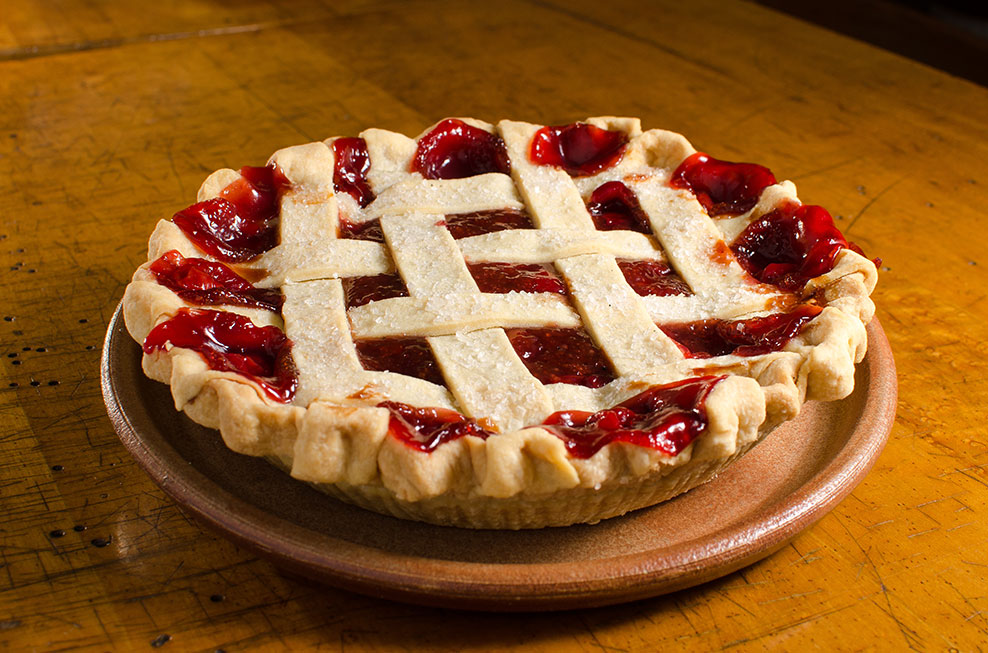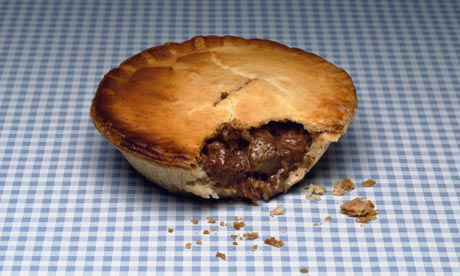My research into pie led me to some interesting cookbooks, one of which was called: “English Hus-wife”. It painstakingly details of the many kinds of pastry dough every housewife should know in order to create the right pie, i.e. pies that needed to be preserved, pies for specific events, or pies that needed to be eaten hot (Markham, www.foodsofengland.co.uk) and the meat fillings to be preserved encompassed within. These medieval pies was in high demand because it was a convenient meal for the lower class, bachelors, and those too lazy to get up from the poker table. A proper English housewife was a woman that not only knew how to make these durable pies correctly, but also to know what kind to make for a specific occasion, which consequently defined her financial worth and household role.
Another interesting cookbook I came across in my research that I'd like to share is an excerpt from a cookbook called, "To the Bride". It taught newlywed women how to care and feed their young husbands, also promising these skills would ensure a happier marital life. One such poem taken from the beginning of the cookbook states:
The
way to a man’s heart, so we’ve always been told, is a good working knowledge of
pot, pan, and mold.
The
talented gal who can whip up a pie, rates a well deserved rave from her
favorite guy.
A
juicy red steak, or a tender, fish fillet done to a turn in a bright copper
skillet, will soothe the rough edges of tempers, no fooling!
And
leave the man happy, contented and drooling (Hurst, Botthof, Barber and Clark,
85).
Through these
period cookbooks, pie making in the early 1900s to 1950s continued the medieval
conception that baking was a necessary skill capable of making one into a
better woman, wife, and mother. Recipes for these pies not only dictated how to
make these required desserts, but also how to conduct one’s self in the kitchen
and in the home, consequently maintaining the traditional domestic roles women
had been put in for centuries.
As we now venture into using cookbooks as sources, I can say it's sometimes both amusing and appalling to see the sincerity of these cookbooks. They truly are earnest to a fault. It is hard for me to see proof of a time that existed where cookbooks were so gendered and insulting. Especially in connection to my beloved pie!
However, in this day and age, I am glad to say I keep my pie baking and pie consumption without gender roles in mind - strictly for enjoyment and deliciousness purposes only.


The connection to pies and housewives are everywhere, especially in films and television shows, Desperate Housewives comes to mind.
ReplyDelete